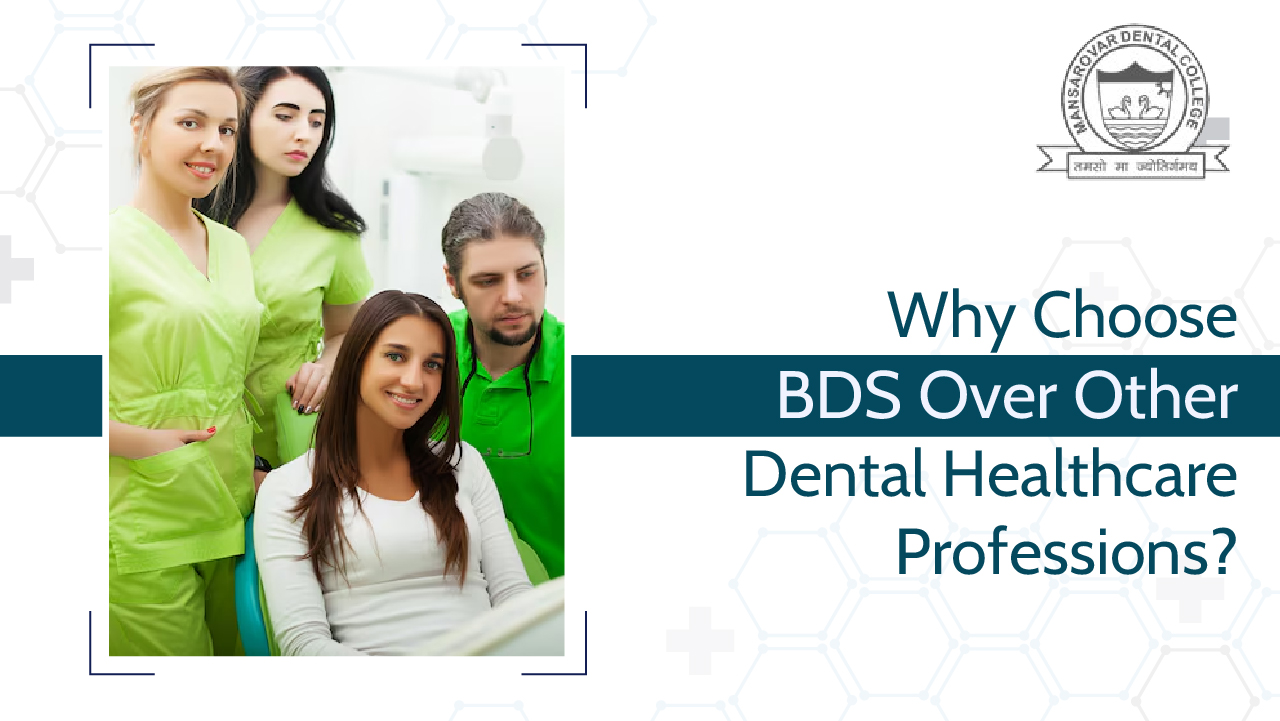
Are you planning to pursue a career in dentistry? If yes, the Bachelor of Dental Surgery (BDS) is one of the finest courses in dentistry. BDS dental degree is an undergraduate-level degree program. After MBBS, the BDS degree is the most chosen UG program by science students. As the name suggests, the BDS is the study of diagnosing, preventing, and treating illnesses, disorders, and oral cavity ailments.
BDS is the primary degree to enter the dentistry world. This degree works as the base of your dental career. To become a successful and skilled dentist, you should choose BDS over other dental healthcare professions.
And here, we are giving you the reasons why you should choose the Bachelor of Dental Surgery (BDS)program for your exciting career growth.
Bachelor of Dental Surgery or BDS is a full-time dental program. It is an undergraduate professional degree course that can be done only by science students. To get admission to a BDS course, students should study Physics, Chemistry, and Biology in 10+2. BDS Courses duration is 5 years. During the last year, students are required to complete their compulsory rotatory internship.
BDS program typically includes courses in anatomy, physiology, biochemistry, microbiology, pathology, pharmacology, dental materials, dental anatomy, oral pathology, periodontology, orthodontics, prosthodontics, and oral surgery, among others.
| Course Name | Bachelor of Dental Surgery (BDS) |
|---|---|
| Duration | 5 Years |
| Type of Course | UG (Full Time) |
| Eligibility | 10+2 with PCB |
| Mode of Admission | Entrance Based |
| Examination Required | NEET |
| Higher Degree Options | Master of Dental Surgery |
| Career Options | Assistant Dentist, Clinic Owner, Dental |
| Practitioner, Researcher | |
| Areas of Work | Hospitals, Healthcare Centre, Private Clinic, Nursing Homes |
| Average Salary Package | INR 7-8 LPA |
Students who want to enrol in the BDS dental degree program must know the eligibility criteria and admission process. Here are the detailed descriptions of BDS eligibility:-
The admission process for the BDS course is based on the rules and regulations of the Dental Council of India. After clearing your NEET examination with a valid score, you should participate in the counselling session.
Also Read: Is an BDS Degree the Right Path for Your Dental Career?
BDS is the finest dentistry course available in India. It is a professional course that prepares skilled dentists or oral surgeons. For better career opportunities, medical students move towards dental courses like BDS. Also, there are multiple career options after BDS.
Here we are giving you 10 reasons why you should choose BDS dental degree as your career:-
Also Read: Career Opportunities after BDS
After BDS, there are various dental courses that you can do. There are many short-term, PG diploma and postgraduate dental courses. Here are the best courses that you can do after completing your BDS degree:-
So with a BDS dental degree, you can make the best career choice for yourself. The degree provides you with in-depth knowledge of dental practices and provides you with the best career opportunities worldwide. If you want growth in your career and a reputed job, choose the BDS degree program today.
No, BDS is a 5-year long program in which 4 years are dedicated to classroom study and 1 year is a compulsory rotatory internship program.
After your BDS degree, you can go with a Master's in Dental Surgery, MBA in Public Health, Clinical Practices, or Overseas career as a Dentist.
BDS opportunities abroad include pursuing advanced studies, participating in exchange programs, engaging in research collaborations, attending conferences, and gaining clinical experience in diverse healthcare settings worldwide.
BDS dental degree is a professional undergraduate degree program that offers great career growth opportunities and a handsome salary package. There is also a high demand for young and skilled dental professionals in the global market.
© 2017 Mansarovar Dental College Powered by SynQues